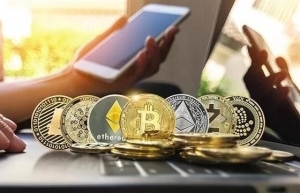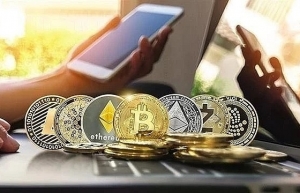INTERNATIONAL INVESTMENT
AND PORTAL
BIDV, one of the few state-owned banks to raise the issue of digital assets during its AGM, noted that the Ministry of Finance’s draft resolution on the pilot issuance and trading of tokenised assets is currently in the consultation phase.
“As a state-owned commercial bank with extensive operational experience, BIDV is committed to working closely with relevant ministries and agencies to implement policies related to establishing a digital asset exchange and developing the associated infrastructure,” stated CEO Le Ngoc Lam.
However, Lam emphasised that the bank has no intention or plan to establish a separate entity to operate a digital asset exchange, citing the high capital, technological, and technical complexity requirements.
“The operation of digital asset exchanges should be undertaken by private sector companies. BIDV will participate in this market as a major bank, in a role similar to how we support settlement and payment activities in Vietnam’s securities market,” he noted.
Meanwhile, VPBank CEO Nguyen Duc Vinh commented that digital asset management is still a very nascent sector. While it plays an important role, it also poses many risks. Nevertheless, according to Vinh, financial institutions, cannot ignore it.
“VPBank is ready to participate and is currently conducting thorough assessments and analyses while engaging with relevant partners, pending approval from competent authorities. We believe that offering digital asset services must be approached with great caution, and we will disclose specific plans at an appropriate time,” he added.
Techcombank chairman Ho Hung Anh also shared the bank’s interest in fields such as blockchain, digital assets, and switching systems, viewing them as potential enablers for the lender’s digital transformation strategy and its goal of greater autonomy in technology and operational platforms.
“These areas are no longer new to the financial sector and have already been integrated into strategic planning by many institutions,” said Anh. “If suitable opportunities arise and market conditions permit, the bank may participate in and develop related platforms. However, a specific roadmap will depend on timing and actual implementation outcomes.”
In fact, both VPBank and Techcombank are among a handful of Vietnamese banks that have already conducted pilot projects and applied blockchain technology within their ecosystems.
Highlighting that banks will not remain on the sidelines of the digital asset movement, State Bank of Vietnam Deputy Governor Pham Tien Dung stated that financial institutions will play a critical role on digital asset exchanges, especially in safeguarding consumers and ensuring the stability of stablecoins.
“A major change is coming related to the decree on digital asset exchanges. I believe many banks still do not fully grasp how such exchanges will function and what role banks will play. But I assure you that banks will have a significant role in consumer protection, settlement and clearing, and ensuring the stable value of stablecoins,” he stated.
“We will see rapid development in the sector soon, not in the next 2-3 years, but possibly in months. For instance, with digital asset exchanges, we will not be waiting for lengthy international comparative studies,” he added.
The issue of digital assets in the banking system is attracting even more attention as questions arise over whether such assets can be used as collateral in the future.
Do Giang Nam, member of the Board at Vietnam Asset Management Company, told VIR that the principle of accepting collateral involves two key conditions.
“First is the necessary legal framework, and Vietnam is currently developing a roadmap to recognise digital assets as valid collateral,” Nam said. “The other condition lies with the banks themselves if they wish to accept this. They must consider various factors, particularly the ability to manage and liquidate these assets in the case of borrower default.”
Dr. Giacomo Merello, chairman of the Antigua & Barbuda Digital Assets Business Promotion Board, remarked that any legal framework for digital assets in Vietnam must enable innovation while safeguarding financial stability.
“To develop an effective regulatory framework for digital assets, Vietnam must address anti-money laundering and counter-terrorism financing concerns, as well as taxation policies, possibly including a 0.1 per cent tax on cryptocurrencies. At the same time, regulators should promote innovation, facilitate trade and investment, and ensure transparency of pledged digital assets while closely monitoring loan-to-value ratios to protect the stability of the banking sector,” he explained.
 Ministry proposes tripartite coordination mechanism to manage cryptocurrency exchanges
Ministry proposes tripartite coordination mechanism to manage cryptocurrency exchanges
The Ministry of Finance has proposed a pilot programme for issuing and trading cryptocurrencies and digital assets, with oversight from three key agencies: the Ministry of Finance, the Ministry of Public Security, and the State Bank of Vietnam.
 Digital assets create prospects for financial securities products
Digital assets create prospects for financial securities products
While the rising popularity of digital assets may pressure stock market liquidity, it also presents opportunities for businesses to adjust models to stay ahead, securities firms acknowledge.
 Exchange-traded funds appealing for digital assets
Exchange-traded funds appealing for digital assets
As digital assets gain increasing prominence, many experts believe that exchange-traded funds could be the safest and most feasible approach.
 New regulations could help legitimise digital assets
New regulations could help legitimise digital assets
New regulations surrounding the pilot of a digital asset exchange will help legitimise crypto assets, entice institutional involvement, and foster regional innovation, opening up a new stream of investment to Vietnam.



















